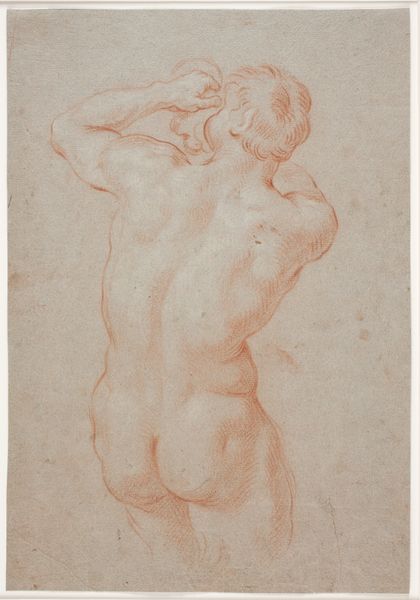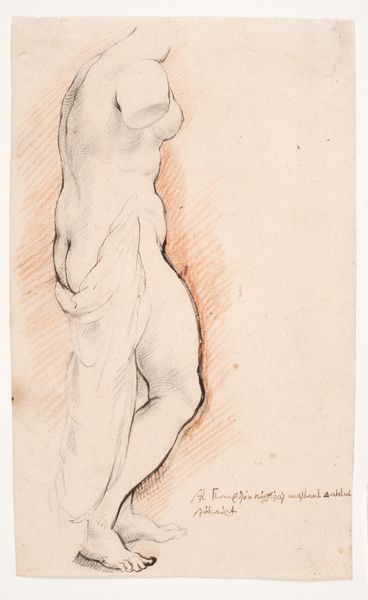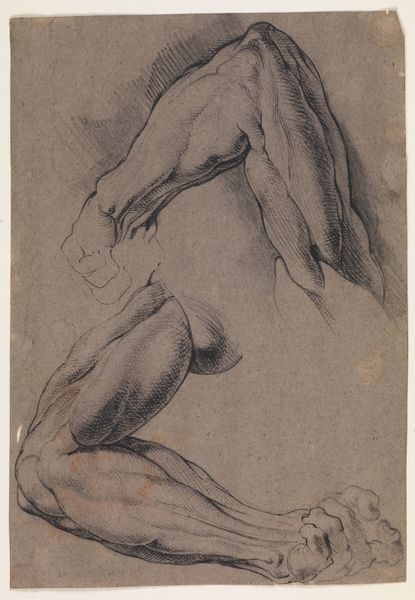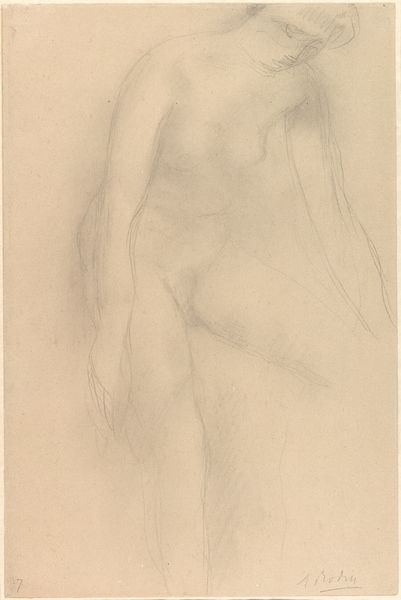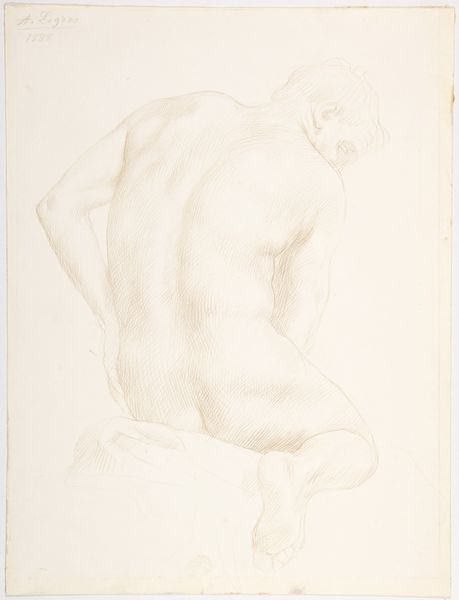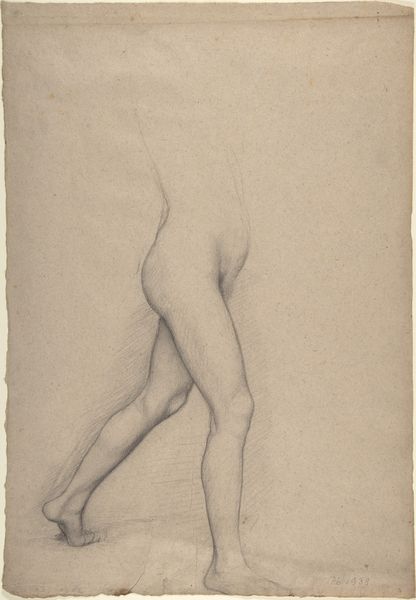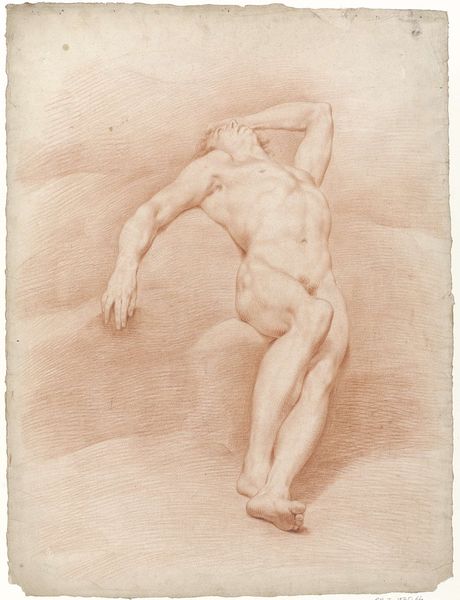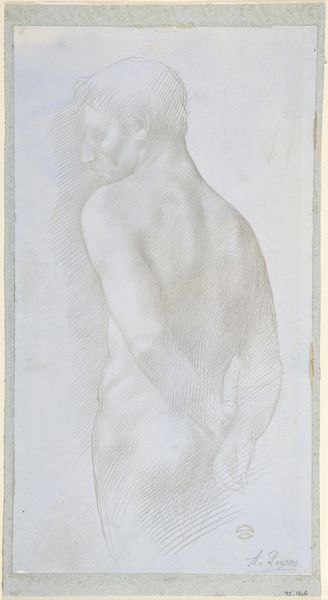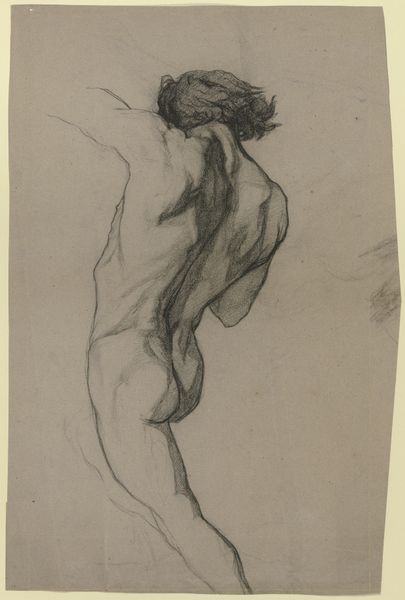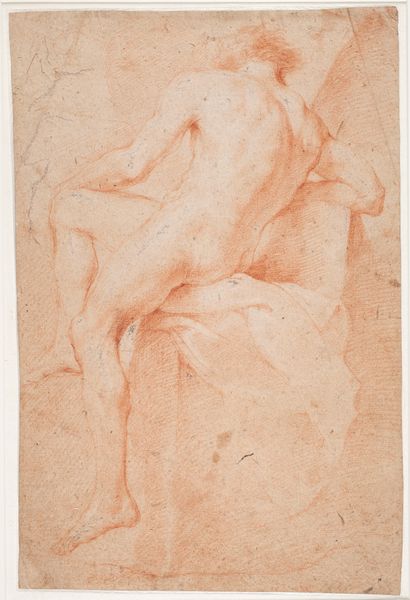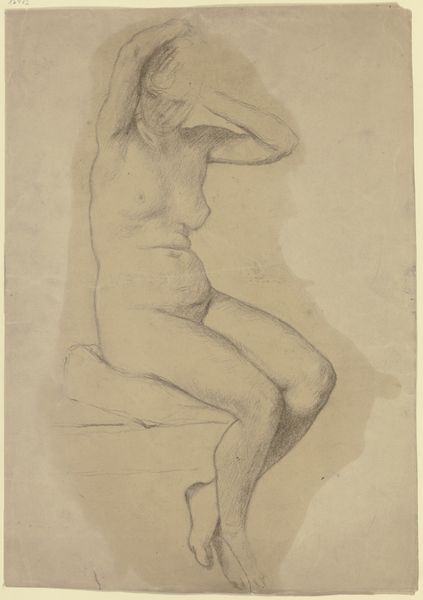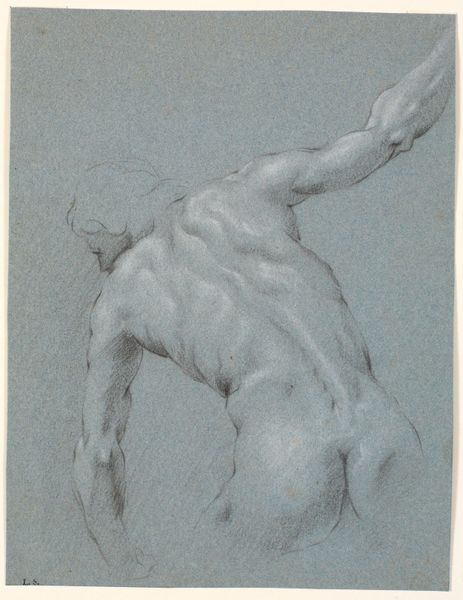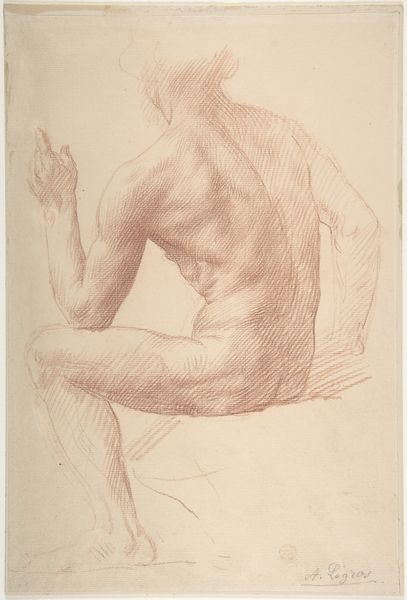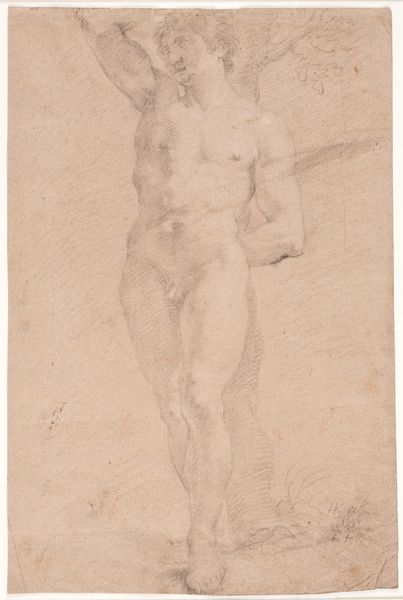
Mod venstre bøjet mandlig model, set fra ryggen 1625 - 1677
0:00
0:00
drawing, pencil, charcoal
#
drawing
#
charcoal drawing
#
figuration
#
11_renaissance
#
pencil drawing
#
pencil
#
charcoal
#
italian-renaissance
#
nude
Dimensions: 332 mm (height) x 271 mm (width) (bladmaal)
Heinrich Dittmers made this drawing of a male nude using black and red chalk sometime in the mid-17th century. Such studies of the human form were central to academic art training across Europe. The nude occupied the top of a hierarchy of genres, because it ostensibly presented universal ideas about beauty and truth, uncontaminated by the fleeting fashions of contemporary life. But, of course, these ideals changed over time, and varied greatly according to place. Dittmers was a German artist, though little is known about his life. This drawing is now located in Denmark. Considering these facts, we can ask ourselves what the institutional and cultural networks might have been that allowed for the circulation of images and people across Europe in this period. Art historians rely on archival documents – artists’ biographies, records of artistic academies, and other historical sources – to reconstruct the social and cultural life of artworks like this.
Comments
No comments
Be the first to comment and join the conversation on the ultimate creative platform.
